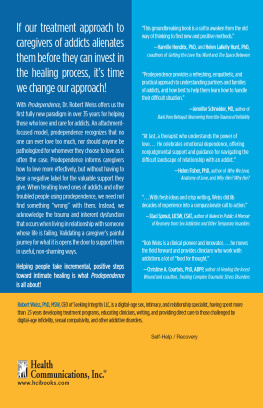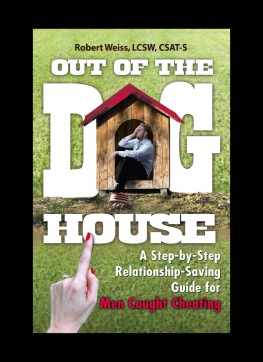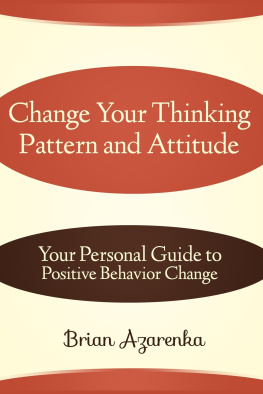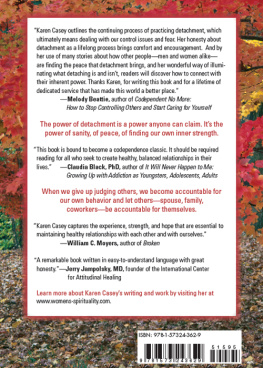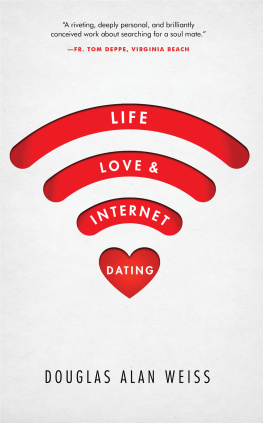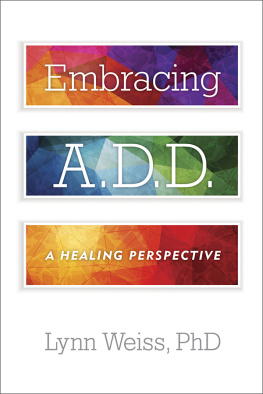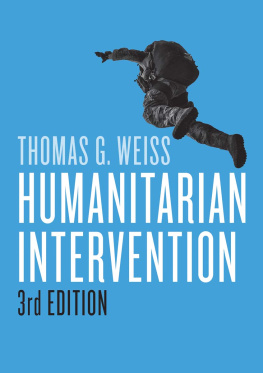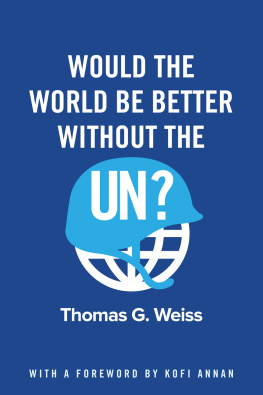Praise for Prodependence
Removing codependence and addiction from the list of diseases that afflict humankind and seeing their cause as responses to overwhelming life conditions rehumanizes those who sufferboth addicts and those who love them. This approach rightly acknowledges them as co-participants in the human journey rather than objects of analysis and treatment. In Prodependence, Robert Weiss has not only created a new term but has also boldly challenged the cultural practice of negatively labeling those in service to others. He shows that by doing so, we devalue their selfless efforts and amplify their suffering. This groundbreaking book is a call to awaken from the old way of thinking to find new and positive methods. We recommend it to all mental health providers and to those whose mental health will improve by reading it.
Harville Hendrix, PhD, and Helen LaKelly Hunt, PhD, coauthors of Getting the Love You Want and The Space Between
At last, a therapist who understands the power of love. Bravo, Robert Weiss! Rather than judging the caregivers of addicts as codependents with pathologies of their own, Weiss recognizes them as normal, mentally healthy men and women with a deep and unconditional love for their addicted partner or family member. He celebrates emotional dependence, offering nonjudgmental support and guidance for navigating the difficult landscape of relationship with an addict. By coming from a positive perspective, his concepts offer hope instead of despair for those living in crisis. And as a bonus, its a fascinating read about the evolution of the recovery movement, and the importance of human kindness and connection in healing.
Helen Fisher, PhD, bestselling author of Why We Love, Anatomy of Love, and Why Him? Why Her?
Rob Weiss is a clinical pioneer and innovator. In Prodependence, he takes issue with the codependence model and replaces it with an attachment-based perspective that is less pathologizing and stigmatizing of an individual or a familys love for an addicted relative. Weiss work and speculation based on his clinical experience moves the field forward and provides clinicians who work with addictions a lot of food for thought.
Christine A. Courtois, PhD, ABPP, author, Healing the Incest Wound and Treating Complex Traumatic Stress Disorders (co-authored with Dr. Julian Ford)
Prodependence provides a refreshing, empathetic, and practical approach to understanding partners and families of addicts, and how best to help them learn how to handle their difficult situation. Avoiding the classic split between the trauma and codependency models, Weiss uses the framework of attachment theory to avoid blaming partners and pathologizing their behavior. Instead, he validates and reframes their efforts and provides techniques to help them heal, improve their self-care, set appropriate boundaries for their own behavior, and deal with their challenges. This beautifully written book is must-reading for all those who love an addict, as well as all mental health professionals.
Jennifer Schneider, MD, author of Back from Betrayal: Recovering from the Trauma of Infidelity
First there was codependence, then there was the trauma model. Now we have prodependencethe evolution of empowerment for partners, families, and others affected by the addiction or illness of someone they love. Bravo, Rob Weiss, for crossing the next frontier in addiction-attachment-systems theory and extending us an invitation and detailed map of how to join him there. With fresh ideas and crisp writing, Weiss distills decades of experience into a compassionate call to action. There is a new and better way to support those whose lives are affected by an addict, and its called prodependence.
Staci Sprout, LICSW, CSAT, author of Naked in Public: A Memoir of Recovery from Sex Addiction and Other Temporary Insanities
Library of Congress Cataloging-in-Publication Data
is available through the Library of Congress
2018 Robert Weiss
ISBN-13: 978-07573-2035-4 (Paperback)
ISBN-10: 07573-2035-X (Paperback)
ISBN-13: 978-07573-2036-1 (ePub)
ISBN-10: 07573-2036-8 (ePub)
All rights reserved. Printed in the United States of America. No part of this publication may be reproduced, stored in a retrieval system, or transmitted in any form or by any means, electronic, mechanical, photocopying, recording, or otherwise, without the written permission of the publisher.
HCI, its logos, and marks are trademarks of Health Communications, Inc.
Publisher: Health Communications, Inc.
3201 S.W. 15th Street
Deerfield Beach, FL 334428190
Cover design by Jim Pollard
Interior design and formatting by Lawna Patterson Oldfield
This book is dedicated to the memory of my mother, Elizabeth R. Weiss, a woman who struggled all her life (and mine) with profound bipolar disorder, unrelenting narcissism, paranoia, and psychosis. She was a brilliant mind, but also one too deeply scarred by mental illness for her to ever reach her potential as a woman, as a thinker, and as a mother. Perhaps due to her deficits, she was my greatest and longest-running prodependence teacher. This is true despite forty-five years of illness, hospitals, emergency rooms, abuse, detachment, enabling, caregiving, rescuing, and broken promises on both sides. This is true despite our many related emotional struggles, some of which still haunt me to this day. And this is true despite all the needed therapy, personal growth, addictions, and losses stemming from that deeply flawed mother/son relationship.
You see, no matter what any therapist, support group or anyone else ever reflected to me, that troubled woman will always be my mom. And I, her son. And within that structure, we both did our broken best to love one another through to the end. Thus Im grateful to have been the one whispering words of peace to her in her last moments. Sadly, due to mental illness, my mother lacked both the tools and the resilience to thrive and enjoy her life (and those of her children). And yet, despite all her deficits and challenges, this woman managed to offer me just enough to be able to survive until I could find my own path to move from surviving to thriving. Thank you, Mom. This ones for you.
Contents
Acknowledgments
P rodependence is a new concept, but there are many people whose ideas, beliefs, and personal and professional support led to the writing and release of this book. In recognition of this, I wish to acknowledge the following individuals:
First and foremost, love and thanks to my husband of eighteen years, Jonathan Michael Westerman, who is my rock and personal teacher of all things prodependent.
Claudia Black, Melody Beattie, Pia Mellody, Robin Norwood, and all the other progenitors of the codependency field. My deep thanks to you for helping so many people in so many important ways, and for laying out a strong-enough path that I may humbly follow in your footsteps, working to forge a new path toward healing.
Dr. Omar Minwalla, Sylvia Jason, Jerry Goodman, Dr. Stefanie Carnes, Dr. Christine Courtois, Dorit Reichental, Dr. Barbara Steffens, and everyone else who has helped to evolve the treatment of betrayal trauma. All of you make a profound difference and, at one point or another, you have all focused my brain toward prodependence.

